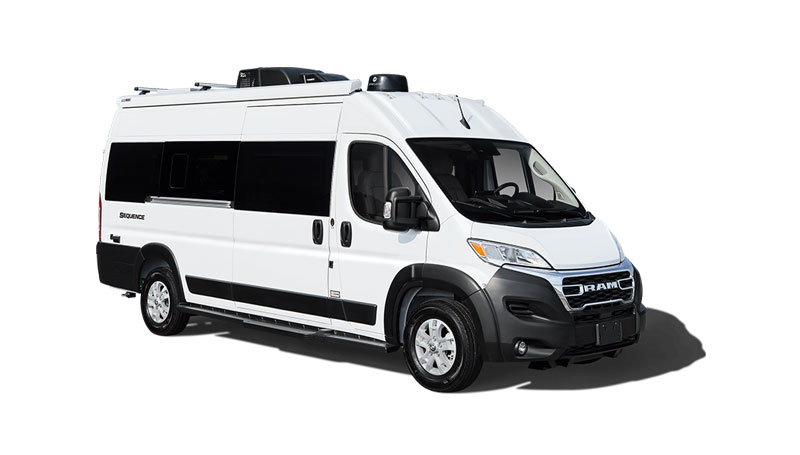
Our first consideration was the financial aspect of buying vs building. After much research, we learned buying a fully manufactured camper van is the more straightforward choice when it comes to financing. Here’s why:
Class B/camper van RVs are categorized as recreational vehicles, making them eligible for RV loans. Many people that have never been in the RV world do not realize that these loans often come with favorable terms that are more like a home loan than that of a regular car loan. You can sometimes obtain a 15 or 20 year loan instead of a traditional 6 or 7 year auto loan. This helped us immensely when it came down to our “buy or build" decision, as it allowed us to save a lot of upfront costs usually associated with a normal van build.
When considering the alternative, we calculated that, for us, converting a van into a livable space would be much more costly for the life of our purchase. While it offers the opportunity to customize your living space exactly as you desire, we realized that the expenses could add up quickly.
During our budgeting process we determined that we wanted our initial payment, including down payment, tax, tag and title to be $10,000, and we were able to work with a dealer to accomplish this on a fully manufactured camper van. Those numbers will vary depending on time of purchase, credit score, and several other factors, but we were happy that we were able to get what we budgeted for.
Building out a van requires up-front purchases such as: the van itself, materials for insulation, flooring, cabinetry, a bed, and various appliances. This also assumes you have the tools and skills needed for the conversion. With these costs in mind, the initial investment seemed at minimum five times the cost of a fully manufactured van up front, for a much lower quality experience. If you're not already a DIY expert, you will also need to consider the necessary labor costs.
Based on our research, obtaining a loan for converting a van into a camper may be more challenging, as it often falls outside the scope of traditional auto or personal loans. We found that securing financing for a fully manufactured camper van was more accessible and less financially burdensome, ultimately playing a pivotal role in our decision.










